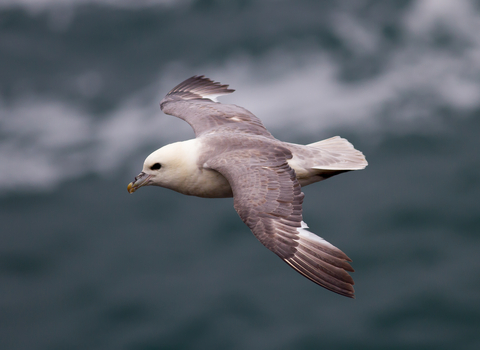
©Mike Snelle
Fulmar
Related to the massive albatross, the fulmar is a gull-like bird that nests on rocky cliff edges. Don't get too close, though - it spits a foul-smelling oil at intruders.
Scientific name
Fulmarus glacialisWhen to see
January to DecemberSpecies information
Statistics
Length: 44-50cmWingspan: 1-1.2m
Weight: 610-1000g
Average lifespan: 44 years
Classified in the UK as Amber under the Birds of Conservation Concern 5: the Red List for Birds (2021).
